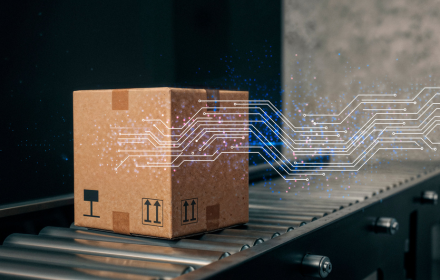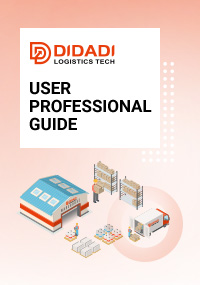Source From Alibaba to Amazon, eBay & Etsy

Starting a home-based business today is easier than at any point in history. With platforms like Amazon, eBay, and Etsy, individuals can build brands and sell products worldwide—all from the comfort of their living room. On the sourcing side, websites like Alibaba, 1688, and Made-in-China provide access to millions of factories and suppliers across China.
But while the tools exist, the journey from “I found this product on Alibaba” to “I’m selling successfully on Amazon, eBay, or Etsy” is full of challenges. Sellers face questions about supplier trust, product quality, logistics, and customer expectations. For many new entrepreneurs, these pain points can feel overwhelming.
This article will take you step by step through the process:
How to confidently source from Chinese suppliers.
How to identify whether a seller can be trusted.
How to research best-selling products on Amazon, eBay, and Etsy.
Why logistics can make or break your home-based business.
And why working with a China 3PL like DIDADI Logistics provides the structure you need to scale.
When you browse Alibaba, you’re essentially stepping into the world’s largest wholesale mall. Everything—from kitchen gadgets and phone accessories to clothing and handmade crafts—can be sourced at factory-direct prices.
On the selling side:
Amazon connects you with millions of buyers worldwide and offers programs like FBA (Fulfillment by Amazon) to streamline delivery.
eBay allows you to sell both new and secondhand items, giving flexibility to test products and niches.
Etsy focuses on handmade and creative products, but many sellers build businesses by sourcing customizable items from Alibaba and adding value through design, branding, or personalization.
This Alibaba → Amazon/eBay/Etsy model is a proven pathway for home-based entrepreneurs. But success requires overcoming a few serious obstacles.
This is the first fear every new importer has. You’ve probably read stories of suppliers disappearing with payments or shipping poor-quality products. While scams exist, the truth is that the majority of Chinese suppliers are legitimate businesses—but not every one of them is a good fit for you.
How to Evaluate Trustworthiness:
Look for Verified Status – On Alibaba, check for Gold Supplier or Verified Supplier badges.
Review Company Age – Long-established suppliers are less likely to disappear overnight.
Check Transaction History – Thousands of completed transactions and strong ratings signal reliability.
Request Samples – Never skip this step. Samples let you judge quality before committing.
Ask for Certifications – If selling in categories like electronics, toys, or skincare, request compliance documents.
Pro Tip: Trust is not built in one conversation. Build a relationship. Reliable suppliers will welcome communication, transparency, and repeat business.
Even if you’ve found a trustworthy supplier, your home-based business depends on choosing products that customers actually want. Picking the wrong item can mean months of wasted effort and money stuck in unsold inventory.
Researching Best Sellers on Amazon, eBay, and Etsy
Amazon:
Check the Best Sellers list by category.
Use keyword tools (e.g., Helium 10, Jungle Scout) to analyze demand and competition.
Look for products with consistent demand, not just fads.
eBay:
Explore “Trending on eBay” or Terapeak.
Analyze sold listings to see how often products move.
Focus on steady niches (home, auto parts, fitness, collectibles).
Etsy:
Browse “Popular Right Now” for trending handmade and personalized products.
Consider hybrid strategies (buy blank items on Alibaba, customize locally).
Niche buyers on Etsy value story and authenticity, not just price.
Pro Tip: Look for “evergreen” products that solve everyday problems. These items sell year-round, providing stability for your business.
It’s true—large sellers with big budgets dominate many categories. But home-based entrepreneurs can still win by:
Niche Focus: Instead of generic yoga mats, sell eco-friendly or travel-sized yoga mats.
Branding: Create packaging, logos, or bundles that differentiate your product.
Customer Experience: Smaller sellers can respond faster and build personal connections with buyers.
Remember, customers don’t just buy products—they buy the story and value around the product.
This is where many new sellers fail. You’ve found the product, negotiated a good price, and even made some sales—but the logistics side is messy:
Delivery takes too long, leading to negative reviews.
Customs hold shipments, creating costly delays.
Shipping fees fluctuate, cutting into profit margins.
Returns from U.S. or European buyers are expensive and hard to manage.
Without a clear logistics strategy, your home-based business can quickly become overwhelming.
Instead of managing logistics on your own, you can partner with a China-based 3PL (Third-Party Logistics provider). This is where DIDADI Logistics steps in.
What DIDADI Logistics Does for You:
Warehousing in China
Store inventory close to factories, ready to be shipped as orders arrive.
No need to stockpile products in your home or rent expensive storage abroad.
Order Fulfillment
Pick, pack, and label products according to Amazon FBA, eBay, or Etsy requirements.
Ensure your customers receive professional packaging and timely shipping.
Cross-Border Shipping
Multiple channels: express for speed, air freight for balance, sea freight for bulk.
Routes optimized for U.S., European, and global markets.
Customs Clearance & Compliance
DIDADI handles paperwork, HS codes, and regulatory checks.
Avoid the nightmare of seized shipments or surprise fees.
Last-Mile Delivery Partnerships
USPS, UPS, FedEx, DHL, and local couriers ensure fast final delivery.
Returns Solutions
Local return addresses in the U.S. and EU reduce costs and customer friction.
Scalability
Whether you’re shipping 50 units a month or 5,000 after a viral trend, DIDADI adapts.
Imagine Sarah, a stay-at-home mom in the U.S. who wants to sell on Amazon. She sources reusable water bottles from Alibaba.
Without a 3PL:
She has to ship bulk inventory to her garage.
She manually packs orders for eBay and Etsy sales.
She struggles with long shipping times for international customers.
With DIDADI Logistics:
Her supplier sends products directly to DIDADI’s China warehouse.
Orders from Amazon FBA, eBay, and Etsy are fulfilled directly by DIDADI.
Customers in the U.S. receive fast, trackable delivery.
Sarah focuses on marketing, customer service, and scaling her brand.
This is the difference a logistics partner makes: less stress, more growth.
Always Order Samples before investing in bulk.
Start Small—test multiple products, don’t put all your money into one.
Communicate Clearly With Suppliers to avoid misunderstandings.
Invest in Branding to stand out from generic competitors.
Partner With a 3PL Early to build a logistics system that scales.
Launching a home-based business today is not about luck—it’s about structure. The Alibaba-to-Amazon/eBay/Etsy model works, but only if you:
Source with confidence from reliable suppliers.
Choose products with real market demand.
Compete with smart branding and customer service.
And most importantly, manage logistics professionally.
By working with a China 3PL like DIDADI Logistics, you remove the biggest operational risks and gain the freedom to focus on growing your business. Whether you’re shipping your first 20 units or scaling to thousands of monthly orders, DIDADI ensures your supply chain is reliable, efficient, and ready for growth.
Your home-based business can be global. With the right strategy and the right logistics partner, you can go from browsing Alibaba to thriving on Amazon, eBay, and Etsy—with confidence.
Recommended Reading















